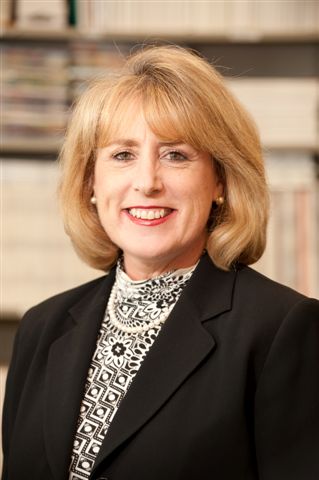Elaine F. Reed, Ph.D.

Biography
Elaine F. Reed, Ph.D., D(ABHI) is the Daljit S. and Elaine Sarkaria Endowed Chair in Diagnostic Medicine, Professor of Pathology and Laboratory Medicine and Director of the UCLA Immunogenetics Center. She is an immunogenetisist and immunologist and provides clinical and academic leadership of the diagnostic, training, and research activities of the Immunogenetics Center, Department of Pathology and Laboratory Medicine, David Geffen School of Medicine, UCLA. Dr. Reed earned her M.S. and Ph.D. in Immunology at Columbia University, New York. She was a post-doctoral researcher in the Division of Immunogenetics, Department of Pathology at Columbia University and trained in the field of Immunogenetics and Histocompatibility Testing. Dr. Reed was appointed as an Instructor in the Department of Pathology, Columbia University in 1987. In 1988, she was promoted to Assistant Professor and became Associate Professor in 1994. In 1994, she became a board certified Laboratory Director in Immunogenetics by the American Board of Histocompatibility and Immunogenetics. From 1986-1999, Dr. Reed served as the Associate Director of the Immunogenetics Laboratory at Columbia Presbyterian Medical Center, New York. Since joining the UCLA faculty, she has been actively been involved in graduate and medical education. A major focus of her work is the establishment of a translational research program for studying mechanisms of antibody-mediated transplant rejection and graft injury. Her team is also developing biomarkers for diagnosis and prevention of transplant rejection. She applies information obtained in basic research to the generation of new immunological tests to guide the clinical practice of transplantation.
Research Interests
Dr. Reed's research efforts focus on understanding the mechanism of allograft injury. The development of donor specific HLA antibodies (DSA) following transplantation is associated with transplant vasculopathy, a manifestation of chronic allograft rejection leading to graft loss. Reed and her colleagues have shown that HLA DSA are pathogenic in chronic rejection by binding to HLA class I and class II molecules on endothelium of the allograft and transducing intracellular signaling pathways that stimulate cell activation, proliferation, migration and leukocyte recruitment. These studies suggest HLA DSA can play a key role in the initiation of proliferative signals and inflammation in the graft, which stimulate the development of transplant vasculopathy associated with chronic rejection of human allografts. Current efforts focus on elucidating the HLA class I and class II signal transduction pathways. Understanding these mechanisms will permit the development of new therapeutic modalities for the treatment and prevention of transplant vasculopathy and the extension of functional life of transplanted organs. The Reed lab also studies ischemia reperfusion injury (IRI) in liver transplantation, a common consequence of the transplant process. The cellular damage triggered by IRI leads to primary graft non-function, necessitating re-transplantation or leading to recipient death. IRI also predisposes the recipient to both acute and chronic rejection and graft loss. The lab is identifying the continuum of innate and adaptive immune responses mediating IRI, which will ultimately permit the development of therapeutic interventions against IRI and improve liver transplant outcomes. An additional focus of Dr. Reed's research is in the development of novel methods for immunologic assessment of the immune response to infectious pathogens in transplant patients. She and her associates are using high throughput genomics and immunomics techniques to study cytomegalovirus (CMV), a common herpes virus that can damage transplants and devastate immunocompromised patients. Approaches for improved understanding and subsequent harnessing of the host immune response to CMV are needed to reduce the burden of CMV complications in immunocompromised individuals, including chronic injury of the transplanted organ.
Affiliations
Professor, Pathology and Laboratory Medicine
Daljit S. and Elaine Sarkaria Endowed Chair in Diagnostic Medicine
Director, UCLA Immunogenetics Center
Vice Chair, Research Services, Department of Pathology and Laboratory Medicine
Member:
NanoMechanical and Nanofluidic Systems, CTSI, California NanoSystems Institute
Eli & Edythe Broad Center of Regenerative Medicine & Stem Cell Research
Signal Transduction and Therapeutics Program Area, Jonsson Comprehensive Cancer Center
Immunity, Microbes & Molecular Pathogenesis GPB Home Area
Molecular, Cellular & Integrative Physiology GPB Home Area
Contact Information
Elaine Reed, Ph.D.
UCLA Pathology & Laboratory Medicine